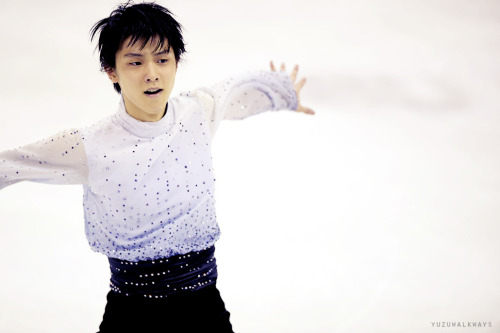Yuzuru Hanyu:
Takahito Mura was very near to perfection. His short program featured a quad toe (slightly two footed)-triple toe a triple axel and a triple ltz in the second half of the program. The spins weren't exceptional and lost some levels on them. 86.28
Jeremy Abbott executed a somehow conservative program without any quad, which happens to be a very good strategy for him. He executed a triple flip-triple toe combo and a triple lutz with great quality and then a gorgeous triple axel in the second half of the program. He didn't receive very high program components compared to usual (and other skaters) that resulted in a score of 81.51.
Daisuke Murakami skated early in the first group but as he nailed a quad salchow-double toe, a triple axel and triple flip. 79.68
Sergei Voronov hasn't been able to replicate his wonderful performance deliverd at Cup of Russia few weeks ago: he did a quad toe-double toe to begin but then two footed his triple axel. 78.93
Yuzuru Hanyu had a very rough short program: he fell on the quad toe and on the triple lutz, didn't do any combo and looked tired at the end of the program. The triple axel in the second half of the program was something of absolute beauty but wasn't enough to assure him his usual scores. 78.01






